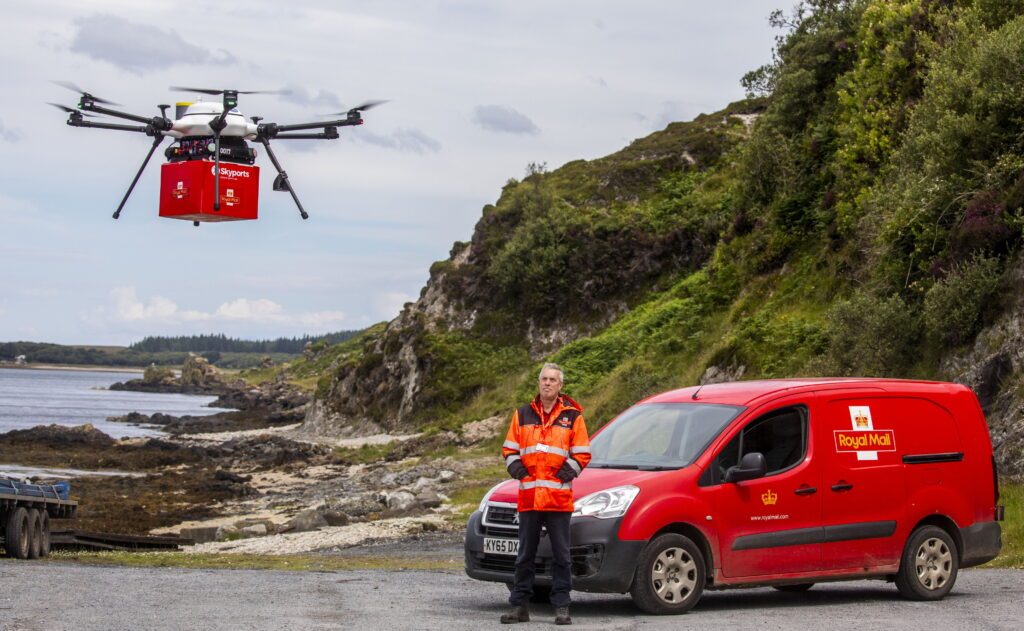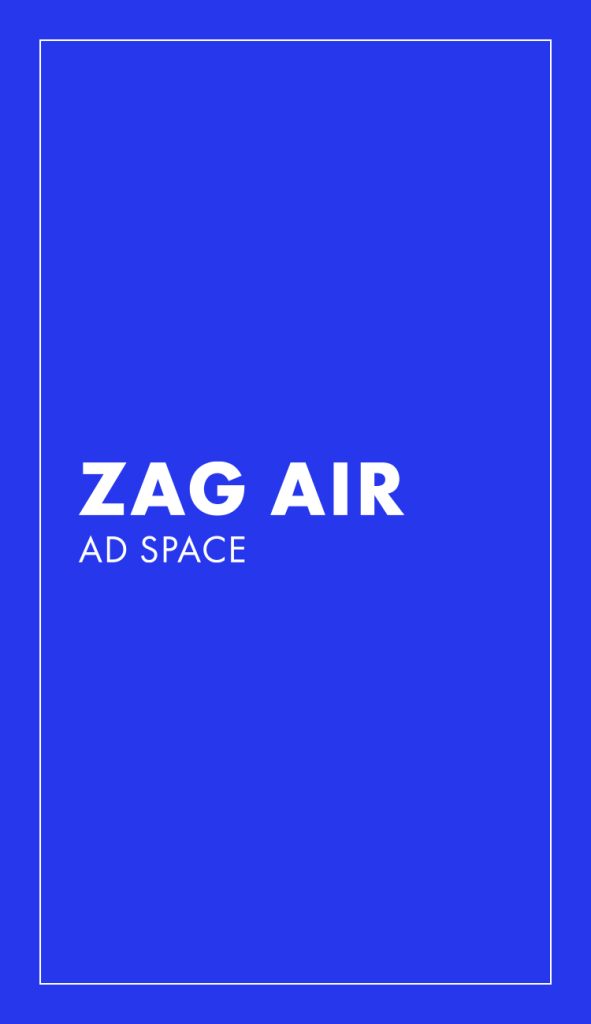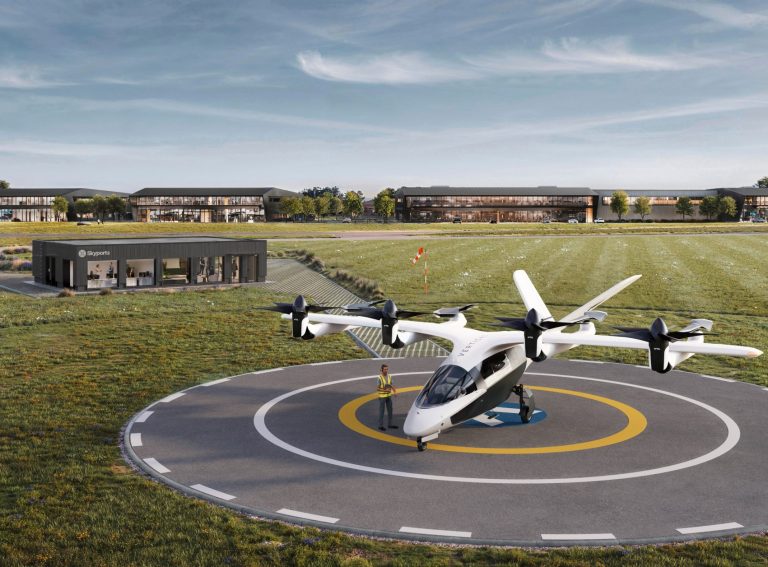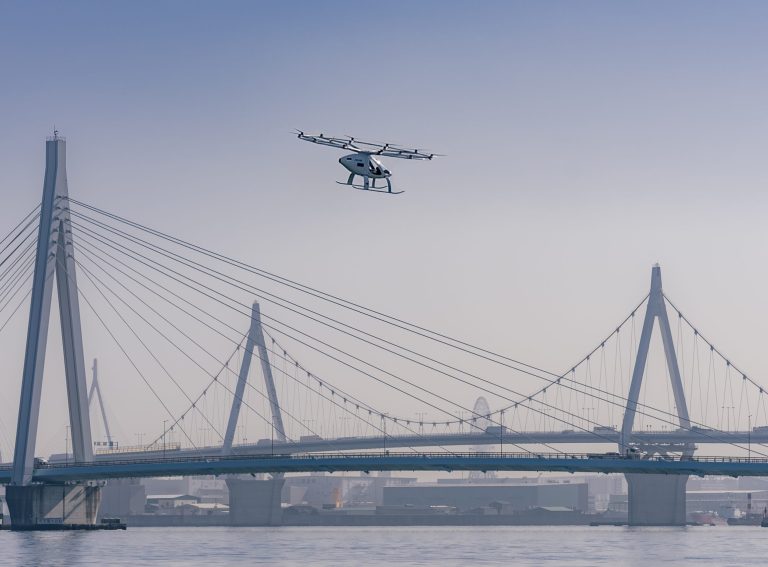Speedbird Aero is a multinational company specialising in unmanned aerial vehicle (UAV) solutions for logistics, with operations across Brazil, Europe, and the Middle East.
Co-founded by Manoel Coelho and Samuel Salomao, Speedbird Aero develops, certifies, and operates drones for a wide range of applications, including the delivery of medical supplies, industrial goods and food, as well as ship-to-shore logistics and environmental monitoring.
Speedbird’s aircraft is among the first UAVs to receive certification from Brazil’s Civil Aviation Agency, enabling the company to carry out thousands of commercial flights under stringent safety protocols. In this interview with Zag Air, Manoel Coelho shares insights on Speedbird’s journey, its impact on Brazil’s infrastructure, and the importance of collaboration in a competitive sector.
Zag Air: Tell us more about what Speedbird Aero does?
Manoel: “We are Latin America’s first company to design, build, and operate unmanned aerial systems (UAS) for logistics. Our aircraft deliver medical supplies, food, and industrial materials across regions that range from major urban areas like Rio de Janeiro, to remote areas like the Amazon Forest and remote islands in northern Scotland. For example, we’ve performed ship-to-shore operations in ports (directly or via our partners) and delivered mineral samples for mining companies, saving hours of transport time. We are focused on expanding operations where we can add value with our unmanned aircraft systems.
“We also collaborate internationally. In the UK, for instance, we work with Skyports on Royal Mail deliveries and real-time water quality analysis projects. While we’re manufacturers at heart, our operational expertise informs our design, ensuring our drones meet real-world needs.”

Zag Air: What industries does Speedbird serve, and what are some of your most unique applications?
Manoel: “We started with medical logistics, transporting medications, blood samples, and are aiming even for organ deliveries in the future. But we’ve expanded significantly. In Brazil, we’ve operated the same food delivery route for over four years, connecting a shopping mall to hard-to-reach areas 10 hours a day, seven days a week.
“Another unique use case is ship-to-shore operations. For example, in Singapore and Brazil, our drones transport cargo between anchored ships and ports, expediting processes like fuel sampling and document transfer. Recently, in the Amazon, we connected a major iron ore mine with a lab 42 kilometres away – cutting transport time from four hours by road to just 40 minutes by drone.”
Zag Air: How do you build public trust in your technology across different regions?
Manoel: “Pick the right use cases to gain public trust. Building public trust requires starting with well-defined scenarios such as transporting medical supplies or operating on dedicated routes, where success can be reliably demonstrated. This creates a solid track record of safety and reliability, which is essential for gaining public confidence before expanding to more complex and populated environments.”
Zag Air: How did Brazil become central to your operations?
Manoel: “Although I grew up in Arizona, I was born in Brazil to a Portuguese family, so Brazil was a natural fit when we decided to expand outside of the USA. We opened our first factory there and began focusing on building drones for logistics. Brazil is a unique test bed. Its size and diversity make it a perfect proving ground for drones. Some areas mirror developed-world conditions, like São Paulo, which has more helicopter traffic than any other city globally. Meanwhile, other regions, like the Amazon, highlight the critical need for drones in remote or underserved areas. Also, there are no government subsidies or coordinated support for our industry, coupled with complex infrastructure challenges which pushes us to innovate and operate sustainably.”
Zag Air: How do you see drones impacting first responder operations in Brazil?
Manoel: “There’s immense potential. We’ve already tested drones for emergency scenarios like delivering defibrillators in São Paulo. However, first responder operations require drones to fly dynamically, often in unpredictable conditions, which is a complex regulatory and technical challenge.
“What we can do now is support organised efforts. For instance, drones can scout an incident site before responders arrive, providing crucial information. This is already happening in Brazil and globally, particularly in public safety scenarios like protests or major events. The key is integrating these drones into systems like U-Space, ensuring all airspace operators – manned or unmanned – can coexist safely.”
Zag Air: Speedbird has achieved significant growth without government subsidies. How are you able to operate sustainably?
Manoel: “That’s right – we’ve had zero government subsidies. Everything we’ve achieved over the past six years has been through private funding, angel investors, and bootstrapping. This forces us to be pragmatic. We don’t take on projects unless they deliver tangible societal or economic value. For example, our operations in northeastern Brazil are 100% local, hiring local talent to boost underserved regions. Subsidies can help, but sustainability is key. We focus on scalable, commercially viable models rather than relying on temporary government support.”
Zag Air: How are you finding the regulations in Brazil?
Manoel: “Certification is vital, and we take it seriously. All our aircraft are certified in Brazil, which has strict requirements. However, regulations haven’t evolved much since 2017. For example, we often need exemptions for routine tasks like flying over highways. This slows innovation. Globally, regulatory frameworks such as Europe’s SORA (Specific Operations Risk Assessment) is a great step towards a more balanced approach to certification by offering mature manufacturers and operators more flexibility based on clearly-defined ground and air risk assessment models. The challenge is for regulators and the industry to work together recognising that technology will always be a few steps ahead of regulations.
“The solution lies in collaboration – companies need to share their expertise and demonstrate trustworthiness, while regulators must adopt best practices from around the world. We’re partnered with Eve Air Mobility and their parent company, Embraer, to advance Brazil’s regulatory framework.”
Zag Air: What would you say defines a successful partnership?
Manoel: “Being upfront and honest. We drink our own kool-aid. We’re an operator ourselves, so we understand what works and what doesn’t. That perspective builds trust. We’re transparent about our limitations – for example, acknowledging that the industry isn’t yet mature enough for large-scale operations over densely populated areas. The supply chain and ecosystem have to evolve, and we’re committed to playing our part while being realistic about what’s possible today.
“Crucial to this is building partnerships. There is a lot of competition in the industry and this isn’t necessarily good. Everybody is fighting for the same dollars, which are scarce, and this creates an illusion that there will be a winner who takes all. There will be no winner-takes-all in this industry. People learn from mistakes and we will see leaders in the sector experiencing losses and then building something successful as a result.”
Zag Air: What would you say is Speedbird’s biggest milestone to date?
Manoel: “Being alive and thriving for six years in such a challenging environment. We’ve navigated crises situations and emerged as a respected operator, partner, and OEM. Everywhere we go, the feedback is positive – from partners and even competitors, who respect what we’re building. That reputation means everything to us.”
Zag Air: Which other players do you feel are really pushing the industry forward?
Manoel: “There are several. I really admire the work being done in Israel, particularly the ecosystem we’ve built there with the Israeli National Drone Initiative (INDI). High Lander and Cando Drones have been fantastic partners, but there are many others as well. I’m also in awe of companies like Google Wing, which are heavily investing in the technology that drives our industry – it gives me hope for a better future.
“Manna in Ireland is another standout. They’ve been very open with their operations, allowing us to see up close their beautifully executed work. On an individual level, Alex Brown and Duncan Walker from Skyports have been instrumental in pushing innovation forward and showing that commercially viable operations are possible to scale even at this stage. There are so many impressive contributors in this space.”




